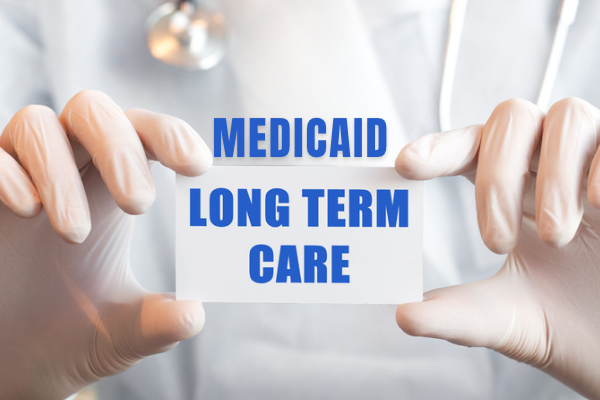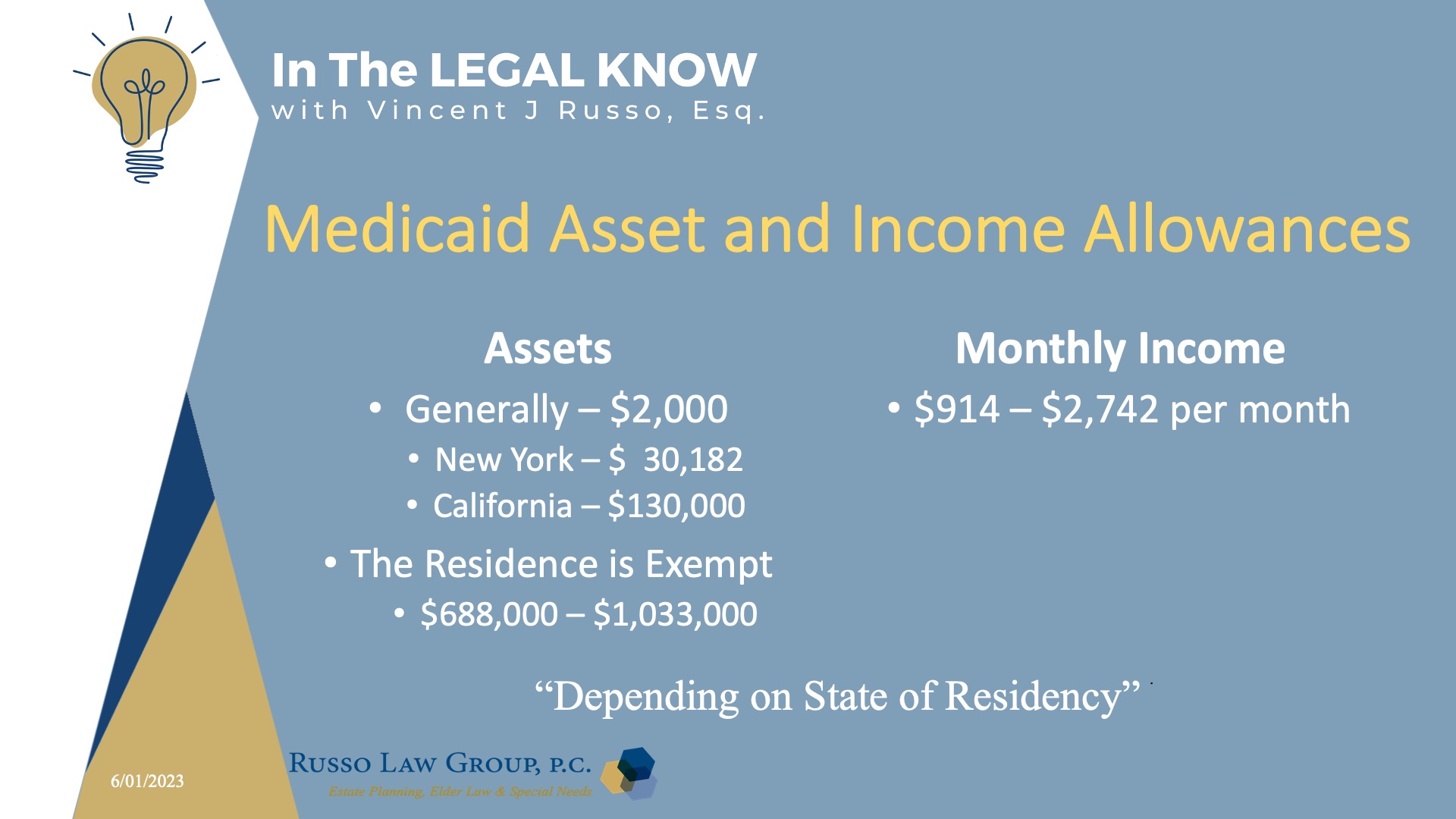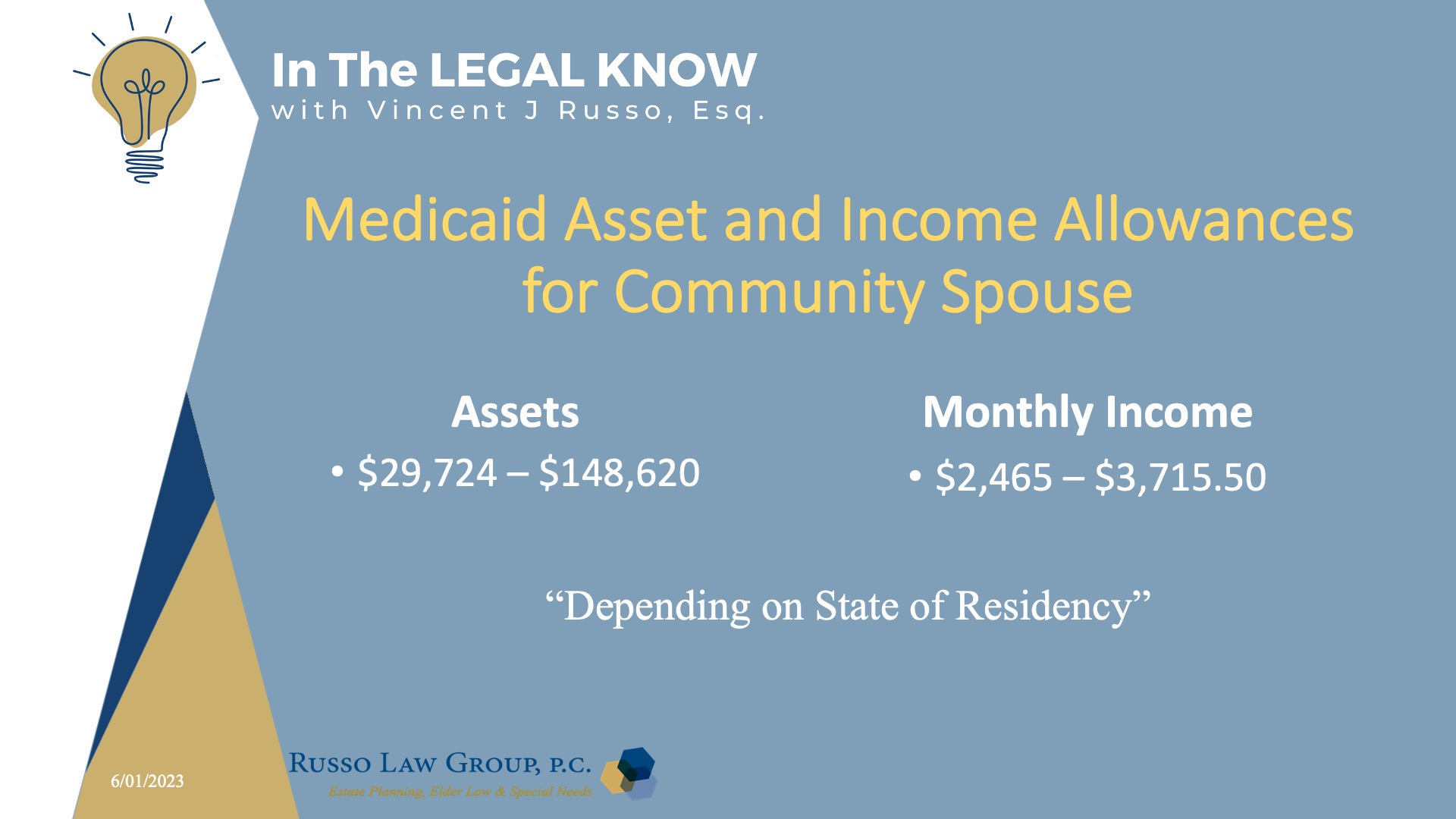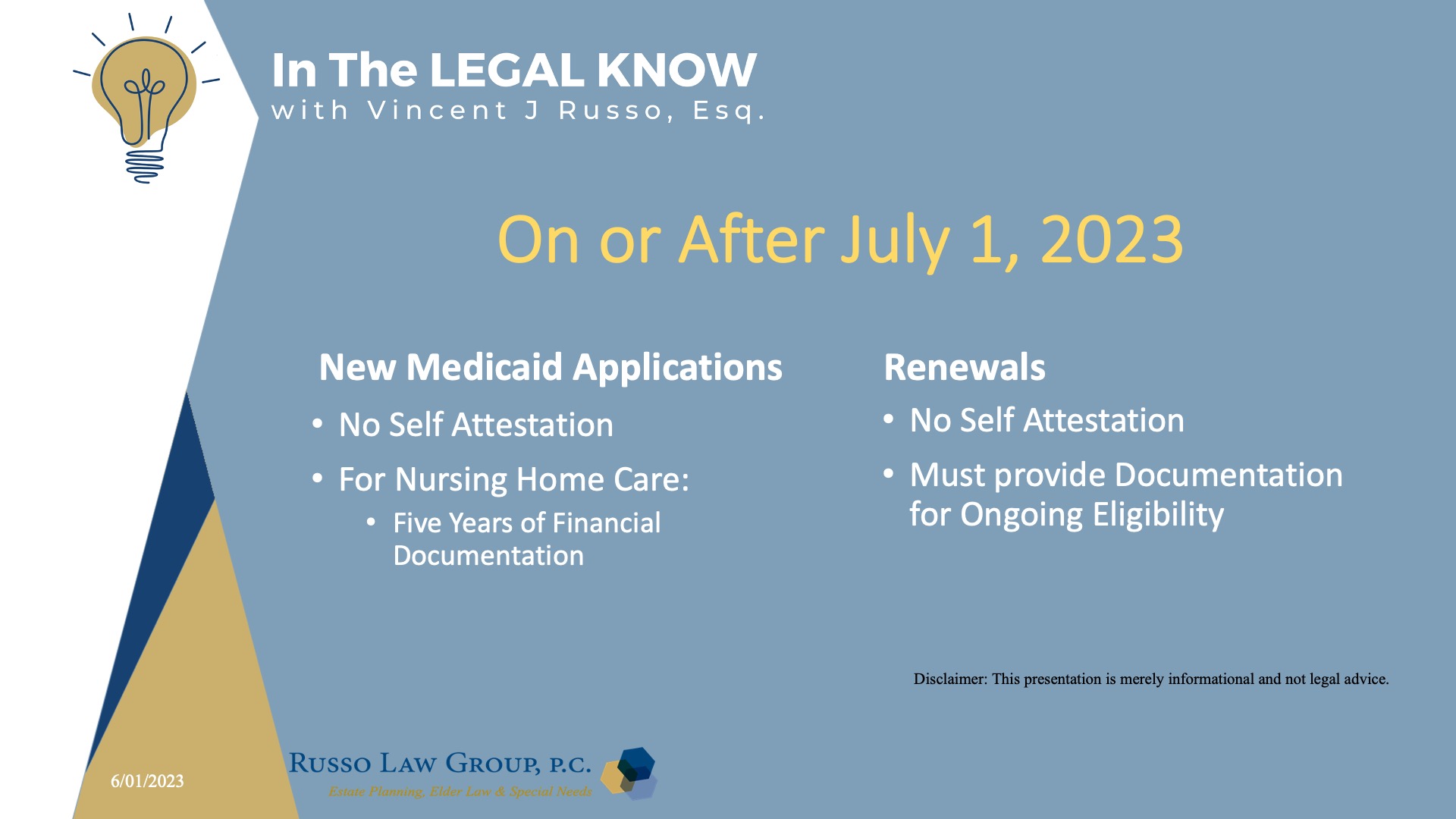Watch “In The Legal Know” with Vincent J. Russo Vincent appeared on CFN Live on…

Medicaid Long Term Care Update
This originally aired on the Catholic Faith Network’s show CFN Live: https://youtu.be/1AFkjXC3-pA
What is the Medicaid Long Term Care Program?
The Medicaid program is the only government program that will pay for long term care. For seniors, it is important to note that Medicare does not cover long term care at home or in a nursing home.
The Medicaid program is available for people who need long term care if they meet the financial eligibility criteria. So, planning to be eligible is critical. Otherwise, you can lose all your assets due to an extended long term care illness.
What should you know when it comes to the latest Medicaid changes?
Rules can vary state by state, but, for example, let’s take a look at New York Medicaid eligibility rules. As a general rule, you can have a certain amount of assets (excluding your home and retirement accounts if you meet certain qualifications).

If you are a single applicant, aged 65 or older, you are permitted up to $2,000 in countable assets to be eligible for Nursing Home Medicaid or a HCBS Waiver.
- The residence has an exemption of up to $1,033,000 (the minimum amount is $688,000).
- New York is a notable exception allowing $30,182, and is California, allowing up to $130,000.
- You can also keep up to a certain amount of your monthly income depending on the State you reside in (from $914 to $2,742)
The maximum income limits change dependent on the marital status of the applicant, whether a spouse is also applying for Medicaid, and the type of Medicaid for which they are applying. Nursing Home Medicaid may have a different income limit than home and community based Medicaid services, and both of those may differ from the Aged, Blind and Disabled income limits.
While persons residing in Medicaid-funded nursing homes are permitted to have monthly income as high as $2,742 in 2023 (in most states), they are not permitted to keep all of it. Instead, nearly all of their income except for a Personal Needs Allowance (which ranges for $30 – $200 / month), must go towards paying for their cost of care. Often, the nursing home coordinates directly with Social Security so the income they would have otherwise received goes straight to the nursing home.
In New York, more people can qualify for Medicaid long term care because the asset and income allowances have gone up dramatically this year.
For assets it is now $30,182 in assets (excluding your home and retirement accounts if you meet certain requirements) and for monthly income $1,697 for the Medicaid home care program.
What are the allowances if you are married?
There are special allowances for married couples:

The non- applying spouse can keep up to $3,715.50 in monthly income (the minimum amount is $2,465) and up to $148,620 in assets (the minimum amount is $ 29,724) without adversely affecting the applying spouse’s eligibility for Medicaid.
Here again this will depend upon the state you live in. In New York, the asset allowance is the greater of $74,820 or ½ of the married couple’s assets not to exceed $148,620 (excluding the residence).
The income allowance is $3715.50 (referred to as the Maximum Monthly Needs Allowance (MMMNA)
New York has chosen the maximum amounts allowed.
Are there any changes when it comes to the Medicaid application process?
Yes, major change as we have come out of the Federal Public Health Emergency for Covid which expired on May 11, 2023. During that emergency period, Medicaid applicants were able to self- attest as to their eligibility. This streamlined the process and made it easier to get Medicaid approved.

Starting July 1st, 2023, Medicaid applicants will no longer be able to self-attest. This means that Medicaid will require your financial statements with the application and for nursing home care, they will require the past five years of your financial statements.
For authorizations ending June 30, 2023, or later, Medicaid will require recipients to provide all documentation for application and renewal as was required pre-pandemic.
Have potential changes in the NY Medicaid home care program been implemented?
There were several changes in New York that were enacted in April 2020 but all of them have not been implemented yet.
The Medicaid home care application process has changed, and it is now more complicated. There is a financial assessment first, and then a physical assessment. The physical assessment is in two parts – one to determine if you need care and then for how many hours by an independent assessor.
Of course, all of this takes time. This is not how we should treat people who need of care.
On the other hand, the good news is that the transfer penalty rule for Medicaid home care is on hold, likely to March of 2024. So, under the current rules, one can transfer assets to family or to a trust and qualify for Medicaid the following month.
This can be a life saver for seniors who need care at home but can’t afford it.
Suggested tips to navigate potential changes…
If you need Medicaid, file before the end of June so you can self-attest.
Also, it is very important that you seek the advice of an elder law attorney to understand how you can qualify for Medicaid and how the application process works. There also may be available in your community a free Medicaid application assistance program.
Click here to download our free Medicaid & Medicare Planning Guide
We hope you found this article helpful. Contact our office today at 1 (800) 680-1717 and schedule an appointment to discuss what makes sense for you and your loved ones.



Thank you for the information.